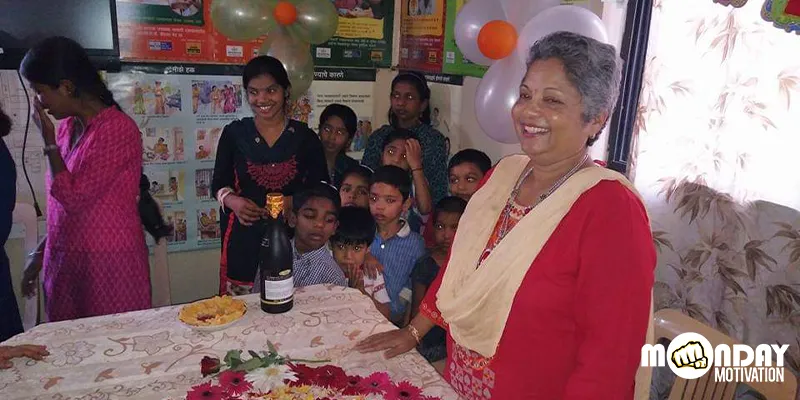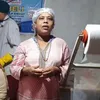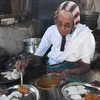How Seema Waghmode is changing the lives of sex workers and their children with her NGO Kayakalpa
Supported by the Bill and Melinda Gates Foundation, Seema Waghmode’s NGO Kayakalpa helps commercial workers and their children in the Budhwar Peth red-light area in Pune with prompt healthcare, shelter, and education.
In January 2020, Priya (name changed) is getting married to a man from Bori village, 100 km from Pune. A few years ago, people looked down upon her and other commercial sex workers from Budhwar Peth, the red-light district in Pune. Getting married and settling down with a partner was a distant dream. Wishing to live free of sexual exploitation, she had approached Seema. That is how Seema usually conducts her rescue projects, with the consent of sex workers themselves.
Other people in the area would also come and inform of any underage women involved in the practice. And they are rescued with the help of police.
Another girl, Abhilasha (name changed) has completed her BCom degree, and is continuing her studies in the banking sector.
Seema Waghmode of Kayakalpa is instrumental in both the women moving forward in life. Her organisation helped Abhilasha with Rs 52,000 to continue her education. But Seema believes her work is far from over.
In 1993, Seema joined a state government’s research team in India for HIV-AIDS. There was little awareness of the virus or the syndrome, and they were sent to assess the health conditions of commercial sex workers. But when they reached Budhwar Peth, the red-light district in Pune, she knew a health inspection alone was not going to help.
She could not just leave the women, or their children to their fate, as they called it.
When she wanted to work for their betterment, her husband Shirish gave her a piece of sensible advice. He said, “If you really want to work for them, go ahead, but there will be a lot of difficulties.”

The rescued children and commercial sex workers under Seema's care
Born into a life of struggle
The red-light area in Budhwar Peth in Pune is home not only to the commercial sex workers but their children as well. Recollecting her experiences in the area, Seema shares that she once heard a boy ask his mother to “take on more customers” because he was hungry. This incident changed her life.
She was convinced that she had to do something for the children who are born into the lives they had not asked for. She saw the children for what they are - pure, innocent, deserving of a childhood and basic rights.
A year later, in 1994, she set up Kayakalpa in Budhwar Peth. It became the first NGO to cater to HIV/AIDS patients, while also working as a rehabilitation centre for the children of sex workers.
Heaven away from home
More than two decades later, she has impacted over 10,000 sex workers and their children. The people in the area love and address her by different names - madam, didi, mama, and now achi (meaning grandmother).
The year 2006 was a trying time for Seema. The sex trafficking industry was at its peak, with hardly few interventions. On learning that children were left with no option but to watch their mothers as they provide sexual services, her organisation Kayakalpa tied up with the YMCA Pune to open a day and night care facility to house the children.
Following this, she and her husband decided that it would make better sense to move the children away from the district. In 2015, her in-laws, the Waghmode family, donated a piece of land in Bori village, and with funding from the Scottish charity organisation, The Free to Live Trust, a Child Development Centre of 6,500 sq ft was built.

Reverend Haribhau Waghmode Patil Pratishthan at Bori village
“It is like a heaven and the one thing I wanted to create for them,” Seema told SocialStory.
Last year, another building was constructed, which allocated separate space for boys and girls. Seema says there is enough land, but the organisation is short on funds to create more facilities like playgrounds, water tanks, and other facilities.
A big family
The development centre is named after her father-in-law, and is called the Reverend Haribhau Waghmode Patil Pratishthan. According to Seema, everybody is welcome here, children from the area and rescued sex workers who usually take care of the younger ones.
“I am there for you and by all means you have to be there for them,” is one advice Seema has passed down to them. Once, early in the morning, an infant was left on its steps. Welcoming her to the house, she was named Angel, and is now around two-and-a-half years old.
A sophisticated beggar
Seema (63) calls herself a sophisticated beggar and believes that it’s okay to ask, as long as the money is used for a good cause. “Why should I feel guilty?” she asks. Seema is always looking for ways to keep her NGOs running. And those who received her help knows this best.
As she stepped out of the car at Kayakalpa on April 7, 2017, the NGO’s office at Budhwar Peth was packed and people were in an unusually celebratory mood. There were petals laid down in heart shapes to celebrate Seema’s 60th birthday.

The commercial sex workers had pooled in Rs 60,000 to gift Seema.
“I collected Rs 40,000 more and bought a cow so that my children can enjoy fresh milk. And we now have ducks, rabbits, and a cow on our farm,” she says.
In 2004, Kayakalpa was offered funding for six years from the Bill and Melinda Gates Foundation, and later in 2008, the Gates family paid a visit to their facility.
“There is reward in coming forward”
These commercial sex workers are highly neglected. Seema has seen little to no progress from the government in addressing their grievances.
The least that can be done, she says, is to convey the importance of using a condom, and providing consistent treatment for HIV/AIDS patients. The monthly treatment that costs Rs 5,000 is sometimes unavailable and they have no other alternative. As a result, the patient’s resistant powers decrease.
To take medication as part of the treatment, the patient should also take care of her diet by having nutritious meals. For this, the sex workers ran a community kitchen, under Kayakalpa, for eight years till they could manage the funds for procuring food. Later, the organisation arranged food for the children and also convinced them to attend school.
It has not been an easy road for Seema. People were sceptical, and also suspicious of her intent. They felt that she was way too invested in the cause and felt she should take time out for herself.
When her elder daughter got married, she told Seema that she didn’t get enough time with her mother and not to do the same to her younger daughter.
But Seema says, there is reward in coming forward, with open hearts, to help those in need.
(Edited by Rekha Balakrishnan)











